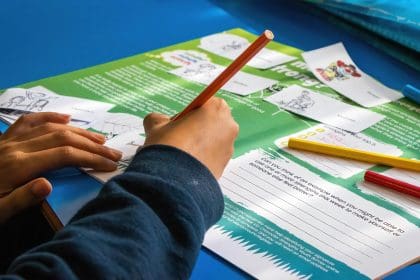
The Hummingbird Project Research Team are delighted to announce the publication of our latest research paper in the academic journal, Frontiers in Psychology. The research team consists of MedEquip4Kids Hummingbird Project staff, researchers from the Universities of Bolton and Chester, and the Open University.
Delivered free of charge by MedEquip4Kids, the Hummingbird Project has been active in schools in Greater Manchester, Cheshire and Merseyside since 2018. It takes a preventative approach to mental health issues by introducing evidence-based concepts and practices that can improve resilience and emotional wellbeing. The six sessions include fun activities and on completion of the six weeks, the school receives a box of toys, books and games to help them put their learning into practice. The topics include kindness, gratitude, character strengths, mindfulness, hope and optimism, and growth mindsets.
The findings and discussion in this paper are from the second year of the project. Our data show significant improvements in wellbeing and hope, together with a reduction in symptoms of mental distress, amongst the pupils who took part in our six-week Hummingbird Project. These are really promising results and we will be building on what we have learned in order to move the project forward this year. You can access the full text below.
Congratulations to the authors: Ian Platt, Dr Kevin Hochard, Dr Michelle Tytherleigh, Dr Chathurika Kannangara, Professor Jerome Carson, Claudine McFaul and Catherine North.












